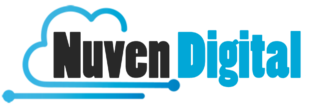The world we live in is made up of a wide range of physical objects and persons. Things can connect with each other via the internet and share data as part of the Internet of Things (IoT). IoT apps allow physical devices to communicate with each other. High-end Internet of Things (IoT) application development is a specialty of CognitiveClouds, a leading IoT service provider.
IoT development platforms with app development features, operating systems, and languages used for programming are all examples of the IoT development tools needed to create complicated apps. In this article, we will list ten different types of IoT application development services.
Top 10 Different Types of IoT Application Development Services!
- Arduino: It is a maker of hardware and software for the IoT. The micro-controlling specialty platform offers boards and modules; you can also use shields and kits on the forum. Robotics and other features like home automation benefit from these hardware needs.
- Flutter: Reconfigurable CPU core Flutter is another IoT hardware device. The Arduino-based board includes an ARM processor, battery charger, and security chip. Its wire-less transmitter, which can be used from a long distance, makes it perfect for sensor networks.
- Kinoma: An open-source Kinoma product line has been developed by a team of engineers from Marvell Technology, Inc., a leading memory device and microcontroller maker.
- Tessel 2: It has a micro processor which can be programmed with JavaScript and other similar and compatible libraries that can link devices. Linux has NPM modules. Tessel 2’s USB ports and already installed module allow for expansion.
- M2MLabs MainSpring: It simplifies M2M app development. This software manages and monitors fleets remotely. Apache Cassandra’s scalability guarantees data storage and retrieval even when stored for long periods.
- Raspberry Pi OS: Raspbian is its official OS. We’re developing a 64b version. Debian-based OS. The Raspberry Pi has thousands of pre-compiled apps and packages.
- js: Node-RED is a programming tool that automates the interactions of IoT hardware and software. Prebuilt repositories, MQTT interfaces, and other devices are all included with Node-RED. Linux subsystems are compatible with Android as well as Windows software.
- Eclipse IoT: It gathers open-source IoT projects. These technologies comprise frameworks for software development and cloud and edge computing. Lua is the chosen language used for Eclipse IoT projects because it focuses on IoT applications.
- SiteWhere: This open-source can deploy and maintain industrial IoT apps. Docker, microservices, etc., are platform tools. SiteWhere moves, stores, and processes data. SitePlatform can be deployed on-premises or in Azure, AWS, or Google Cloud.
- DeviceHire: It’s a Kubernetes-managed platform with container-based architecture and structure and supports Python, Java, and C# libraries. This scalable and independent devices framework can be used to develop complicated IoT apps.
Conclusion!
The Internet of Things is creating new business prospects at a rapid rate (IoT). IoT solution-creation tools are also increasing in quantity. For your benefit, we’ve created a list of some of the most often used tools in the industry today.


